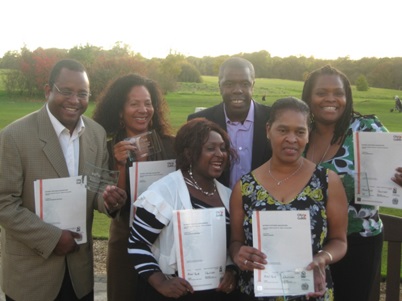Personal Development Plans

Current Fostering National Minimum Standard 20.5 requires that foster carers’ personal development plans set out how they will be supported to undertake ongoing training and development that is appropriate to their development needs and experience. These standards also (NMS 20.6) require that the reviews of each foster carer’s approval include an appraisal of performance against […]
Alternative Views of Management

Approaches to management used in social care have been influenced by many years of management theory. For years management studies have examined management practice to distil the principles and practise of good management. Identifying such principles and practises can help to enable managers to improve their management performance. Several different schools of thought have emerged […]
Champion equality, diversity and inclusion

Learners who attempt to achieve the Level 5 Diploma in Leadership for Health and Social Care and Children and Young People’s Services (England) come from a range of leadership backgrounds including: Registered Managers Managers Assistant managers Deputy managers Senior care/support workers/supervisors Co-ordinators Team leaders Health and social care and children and young people’s services also […]
Existentialism and Responsibility for Your Actions

Existentialism is a radical philosophy which takes our life issues as its central focus. From an existentialism perspective despite people being in this world without their prior consent – it’s up to us to create our life’s meaning. According to Sartre, ‘existence precedes essence’ it means that people don’t have any predetermined purpose why they […]
Supporting People Experiencing Mental ILL Health

Knowing about factors related to Mental ill health as well as Physical health, can contribute to promoting the wellbeing of individuals. Experiencing mental ill health may involve having to face personal transitions, that are not necessarily shared or understood by members of the family or significant people in their support network. Such transitions include: family […]
Online Safety

Online safety In online environments and when using technology such as computers, mobile phones or games consoles – online safety is an essential element of safeguarding children and young people as well as vulnerable adults. Online safety is not about restricting children/young people and vulnerable adults use of technology or banning access as this may […]
Introduction to Attachment Theory
Attachment theory was devised by psychiatrist and psychoanalyst John Bowlby. Within attachment theory, infant behaviour associated with attachment is primarily the seeking of (Close) proximity to an attachment figure in stressful situations; the caregiver. Attachment theory suggests that Infants become attached to adults who are sensitive and responsive in social interactions with them, and who […]
Levels of qualifications attained makes a difference
The lower a young adult’s qualifications, the more likely they are to not be in employment but wanting paid work. For example, around a 25% of all people aged 25 to 29 with no GCSEs at grade C or above were not in employment but wanted paid work in 2010. This compares to around 7% of those with […]
Children in Care Need Male Care workers Too!
Male care workers can often be the first positive male role models that children have met, and play a vital role. But male care workers can face their own challenges in roles traditionally considered to be mainly carried out by women. Children in Care invariably bring a history of their relationships with males to fostering and […]
The Fostering Network the State of the Nation’s foster care survey (2016)
The Fostering Network the State of the Nation’s foster care survey (2016) – What foster carers think and feel about fostering is now available. The Fostering Network research involved in total 2,530 foster carers from across the UK completed the survey online: 1,942 of these fostered in England, 359 in Scotland, 122 in Wales and […]
